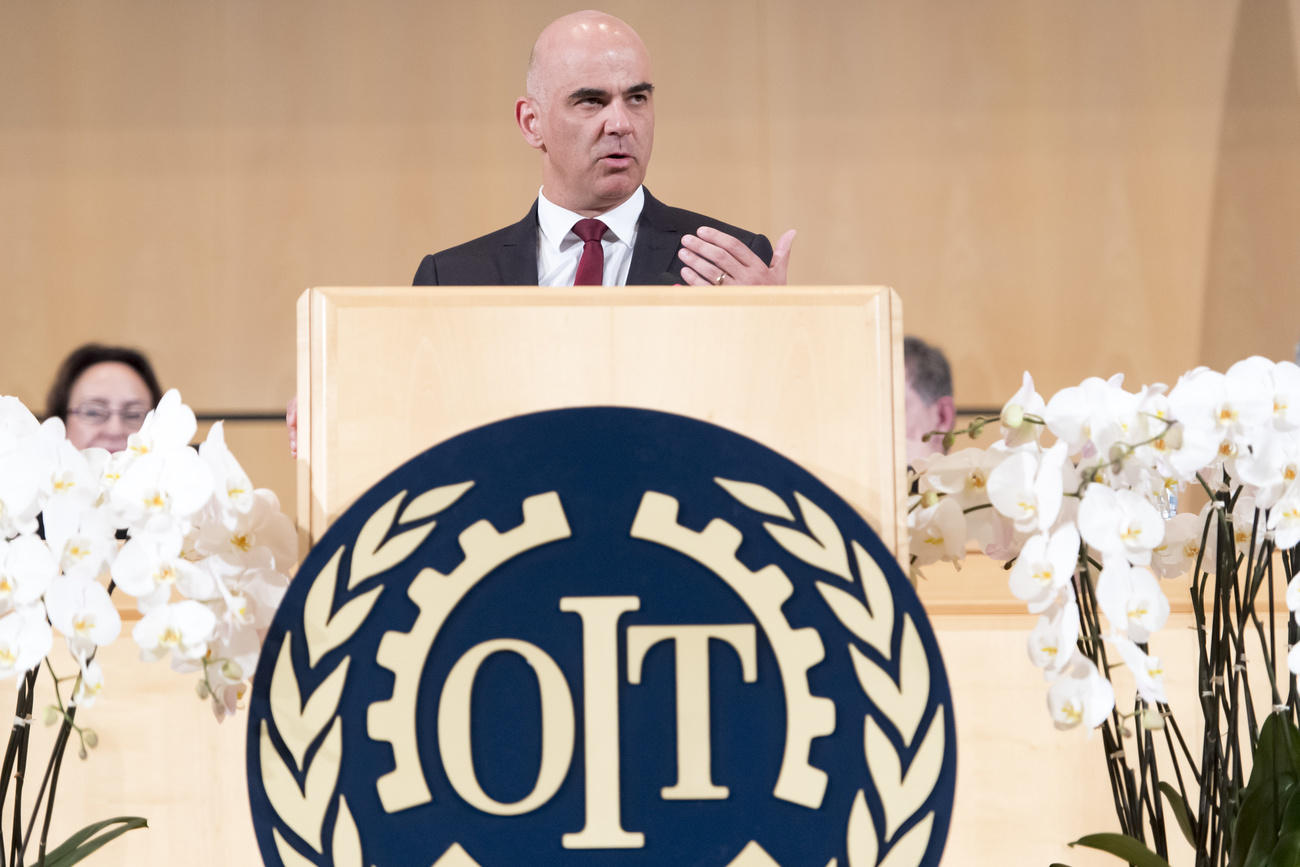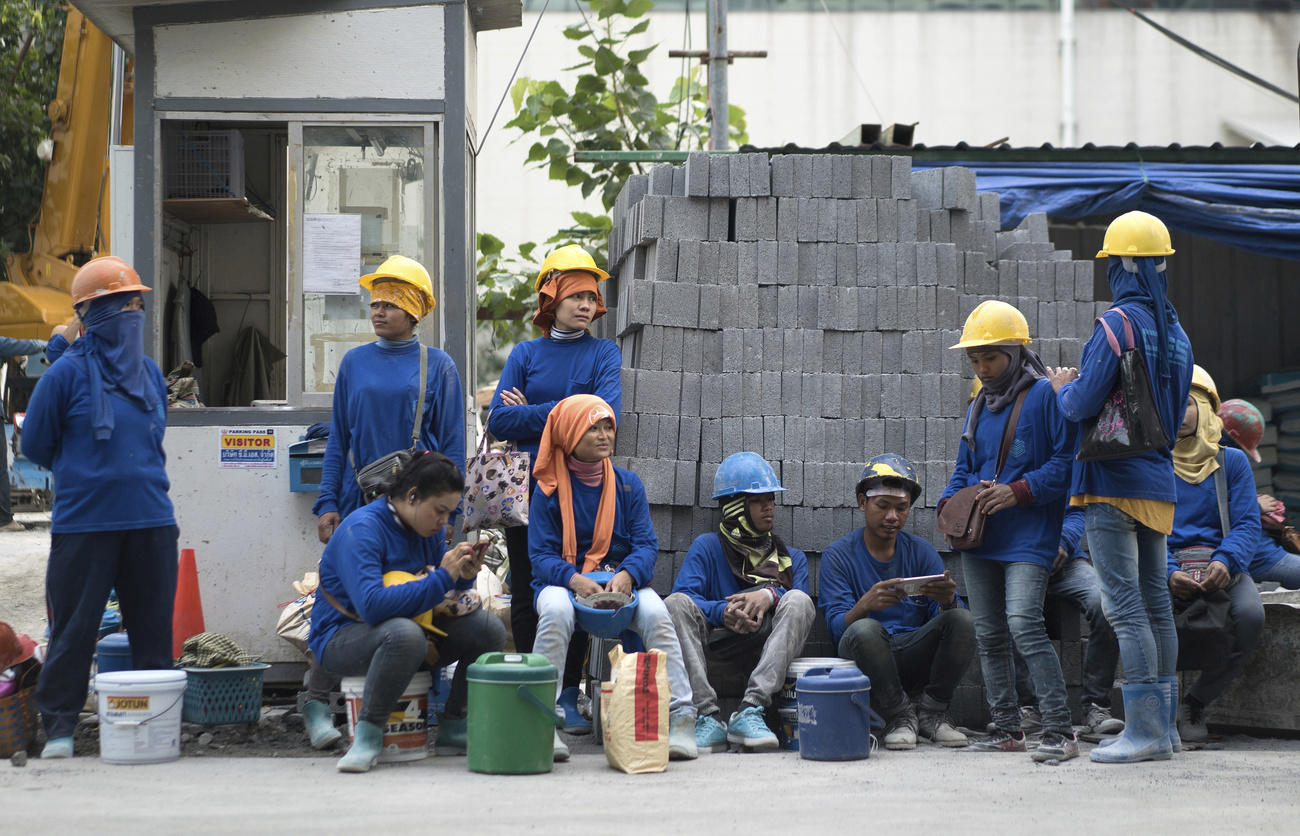
Swiss open ILO centenary meeting with call for pay equity and social partnership

Federal Councillor Alain Berset defended the role of the International Labour Organisation in the digital age in his opening speech at the organisation’s 100th meeting in Geneva. He also called for more efforts to achieve equal pay - a subject that is top of mind with a nationwide women’s strike on Friday, June 14.
In his speech at the opening of the centenary meeting, Berset praised the ILO’s tripartite model that brings together governments, employers and trade unions and called on countries to work together rather than call into question free trade.
With new challenges associated with the changing nature of work in the digital age, Berset told delegates that “more than ever, we need common standards to ensure fair competition between countries”. Member states are expected to adopt a “Centenary Declaration” that will define the future of work in the digital age.
The Swiss interior minister also stressed the “need” to guarantee women “a fair and decent salary”, calling on countries to join the Equal Pay International CoalitionExternal link.
Last year, the Swiss parliament passed an equal pay law mandating reporting of wages for companies with more than 100 employees. There has been very little movement on the gender pay gap in Switzerland with the latest figures revealing that men earned 19.6% more pay than female colleagues in 2016, compared to a 19.5% difference in 2012.
The ILO was founded in 1919, making it the oldest UN special organisation. More than 190 agreements and 200 recommendations on labor standards have been agreed since its founding
Blacklisted
Switzerland hasn’t been in ILO’s good graces lately. A couple of weeks ago, the country was put on the ILO’s blacklist for violating certain labour conventions. According to the ILO, employees active in trade unions are not sufficiently protected from being sacked in Switzerland.
While dismissal is against Swiss law if it is the result of legitimate trade union activity, the maximum compensation for wrongful termination is only six months’ wages, which the ILO finds insufficient. Some 40 countries are on the list, which is expected to be reduced to 25 countries during the meeting.
The ILO also ranked Switzerland at the bottom of the list when it comes to the wage gap between men and women in senior roles. In Europe and central Asia, only Italy, Kazakhstan and Israel pay even less for women managers than their male counterparts.

More
Geneva conference tackles workplace harassment and future jobs

In compliance with the JTI standards
More: SWI swissinfo.ch certified by the Journalism Trust Initiative





























You can find an overview of ongoing debates with our journalists here . Please join us!
If you want to start a conversation about a topic raised in this article or want to report factual errors, email us at english@swissinfo.ch.